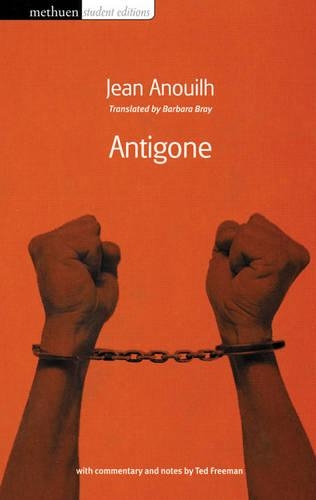
Antigone
(Paperback, New edition)
Available Formats
Publishing Details
Antigone
By (Author) Jean Anouilh
Translated by Barbara Bray
Edited by Ted Freeman
Bloomsbury Publishing PLC
Methuen Drama
1st August 2006
New edition
United Kingdom
Classifications
Tertiary Education
Non Fiction
Literary studies: plays and playwrights
842.912
Physical Properties
Paperback
144
Width 128mm, Height 196mm, Spine 9mm
128g
Description
'Anouilh is a poet, but not of words: he is a poet of words-acted, of scenes-set, of players-performing' Peter Brook Jean Anouilh, one of the foremost French playwrights of the twentieth century, replaced the mundane realist works of the previous era with his innovative dramas, which exploit fantasy, tragic passion, scenic poetry and cosmic leaps in time and space. Antigone, his best-known play, was performed in 1944 in Nazi-controlled Paris and provoked fierce controversy. In defying the tyrant Creon and going to her death, Antigone conveyed to Anouilh's compatriots a covert message of heroic resistance; but the author's characterisaation of Creon also seemed to exonerate Marshal Petain and his fellow collaborators. More ambivalent than his ancient model, Sophocles, Anouilh uses Greek myth to explore the disturbing moral dilemmas of our times. Commentary and notes by Ted Freeman.
Reviews
"Anouilh is a poet, but not of words: he is a poet of words-acted, of scenes-set, of players-performing." --Peter Brook, Director
Author Bio
Jean Anouilh (1910-87) is regarded as one of France's best-known dramatists. ANTIGONE firmly established his popularity in France in 1944 and Peter Brook's 1950 production of Ring Round the Moon (1947) made his name in England. Twice married, he lived mainly in Switzerland for the last thirty years of his life.
